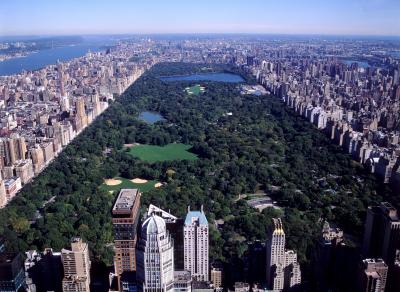Generally, “the” is used with singular and plural
nouns, countable and uncountable ones, to talk about something specific when the noun is mentioned for a second time.
Examples: Can I
try the green T-shirt, please?
(Which? The green one; specific)
There was a mouse in the
kitchen. Our cat caught the mouse.
Also “the” is used before singular countable
nouns to refer to a group of people, animals or things. But a/an can be used instead of “the” and
it means the same in this case.
The/a dolphin lives in the sea. (We mean all dolphins)
Glossary
equator- równik
mountain range – pasmo
górskie
possessive adjectives – przymiotniki dzierżawcze
measles – odra
(choroba)
mumps – świnka (choroba)
The is used
before:
- nouns which are unique (e.g. the Earth, the Colosseum, the equator)
- names of:
hotels (The
Savoy)
theatres (The
Palladium)
museums (The
Prado)
newspapers/magazines (The
Independent) BUT: (Time)
ships (The Cutty Sark)
institutions (The British
Council)
galleries (The
Tate Gallery)
- names of:
rivers (the
Nile)
seas (the
Black Sea)
groups of
islands/states (the Shetland Isles, the USA)
mountain ranges (the
Himalayas)
deserts (the
Sahara desert)
oceans (the
Atlantic)
canals (the Manchester Canal)
- names or nouns with “of” (the Valley of the Kings, the Garden of Gethsemane)
- geographical directions (the South/West/North/East; the South of France)
- musical instruments, dances (the piano, the samba)
- names of:
families (the
Hunters)
nationalities ending
in - sh, - ch or – ese (e.g. the English, the Dutch, the
Japanese etc.)
- titles (the Patriarch, the Duchess of Windsor, the King) BUT: “The” is omitted before titles with proper names (King Carlos)
- adjectives used as plural nouns (the young, the unemployed, the homeless, the blind etc.) and the superlative degree of adjectives/adverbs. (She is the most beautiful girl I’ve ever seen.)
NOTE: “Most” used as a determiner followed by a
noun, does not take “the”. (Most
people like eating.)
- the words: beach, cinema, city, coast, country(side), earth, ground, jungle, radio, pub, sea(side), sky, station, shop, theatre, village, weather, world etc.
BUT: Not before “man”
NOTE: “the” is optional with seasons ((the)
summer)
- morning, afternoon, evening (I’ll be home late in the evening)
BUT: at night, at noon, at midnight, by day/night, at 4 o’clock etc.
- historical references/events (the Russian Revolution, the Renaissance, the Cold War)
BUT: World War II
- only, last, first (used as adjectives)
She was the last person in the race.
The is omitted before:
- proper nouns (I’ll see Mike tomorrow)
- names of sports, games, activities, days, months, holidays, colours, drinks, meals and languages (not followed by the word “language”)
My brother plays football well.
She likes pink.
I can’t speak German.
BUT: The ancient Greek language is hardly used now.
- names of countries (England)
BUT, there are exceptions: the Argentine, the
Netherlands, (the) Sudan, the Hague, the Vatican City
- names of cities (London)
- names of streets (Carnaby Street)
BUT: the High Street, the Strand, the Mall, the A11, the M4 motorway
- names of squares (Trafalgar Square)
- names of bridges (Tower Bridge)
BUT: the Bridge of Sighs, the Forth Bridge, the Severn Bridge, the Golden Gate
Bridge
 |
| Central Park |
- names of parks (Central Park)
- names of stations (Euston Station)
- names of individual mountains (Kilimanjaro)
- names of islands (Sicily)
- names of lakes (Lake Victoria)
- names of continents (Africa)
- possessive adjectives
That isn’t your pen.
- two-word names whose first word is the name of a person or place (John F. Kennedy Airport, Windsor Castle)
BUT: The White House (because the first word (White) is not
the name of a person or place)
- pubs, restaurants, shops, banks and hotels which have the name of their founder and end in –s or –‘s (Woolworth’s, Lloyds Bank, Tom’s Bar)
BUT: the Red Lion (pub) (because “Red Lion” is
not the name of a person or place)
- bed, church, college, court, hospital, prison, school, university, when we refer to the purpose for which they exist
John went to hospital. (He is a patient)
BUT: His
mother went to the hospital to see
him last week. (She went to the hospital as a visitor.
Work ( = place of work) never takes “the”.
She is at work.
- the words “home”, “father/mother” when we talk about our own home/parents.
Father is at home.
- means of transport: by bus, by car, by train, by plain etc.
BUT: in the car, on the
bus/train etc.
He travelled by bus. BUT: She
caught the 5 o’clock bus.
- We say: flu / the flu, measles / the measles, mumps / the mumps
BUT: He’s got malaria.
***
When this article is published, I'am probably on the beach. I'll be back in late August. So see you soon!




Fajny post. Powiem szczerze, że często miałam problemy ze wstawianiem przedimków. Teraz już trochę się z tym osłuchałam, ale zawsze dobrze mieć pewną, gotową ściągę;)
ReplyDeletePozdrawiam
I visit your blog that's interesting.
ReplyDeleterecently I've started a new blog about English Idioms.I wonder if you put my link on your blog.thanks
http://englishidioms1.blogspot.com/
Jak ktoś powyżej napisał, fajna ściągawka:) Niestety, "the" jest bardzo podchwytliwe i chyba jedynie native speakerzy nie mają żadnych problemów z jego operowaniem. Sama się przekonałam, że owszem, regułki ułatwiają życie, ale często o wiele bardziej liczy się sytuacja i kontekst, w której zostaje owo "the" użyte.
ReplyDeletePozdrawiam! :)
Finally we have this post here!! Thanks:) This stuff is always useful and needed.
ReplyDelete